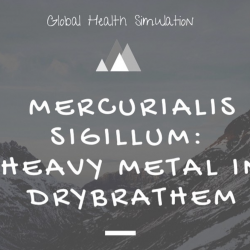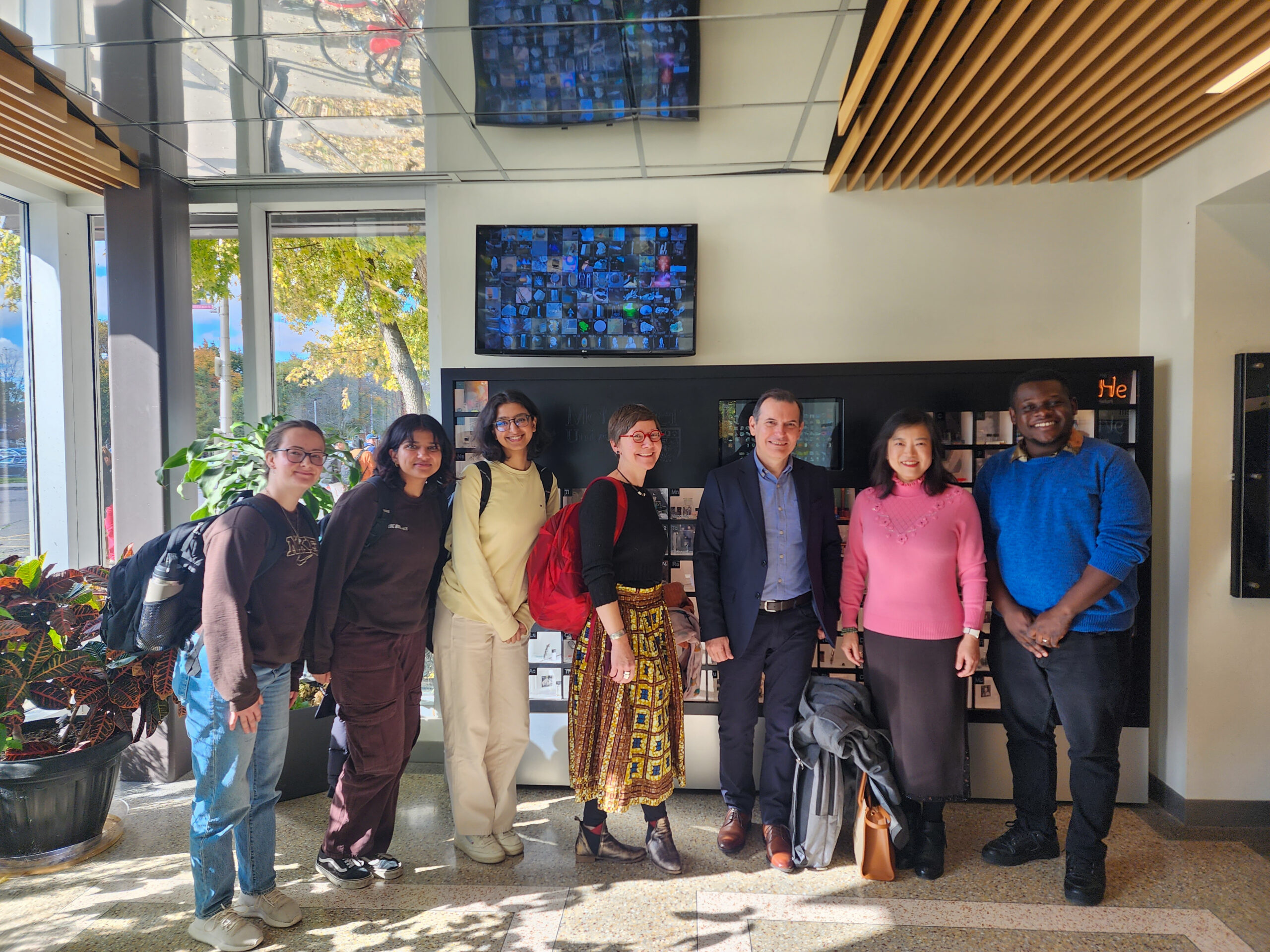Learning Through Experience: Global Health Simulation – Mercurialis Sigillum

After a week of insightful discussion, the Global Health Simulation, Mercurialis Sigillum, has officially come to an end. The simulation provided global health students with the unique opportunity to learn through experience. Participants were immersed in a complex situation related to the interconnection of environment, industry and health, and were required to approach the challenge with the perspective of a prescribed stakeholder. The experience could be described as, “telling the same story from 20 different perspectives.”
It was an exciting time, and we spent it with about 30 of our peers who described the experience as “dynamic”, “fast-paced” and “eye-opening”. Participants played the role of a stakeholder; some roles included Minister of Northern Affairs, Mayor, NGO representatives, Women’s Groups advocates, and Indigenous community chiefs. Each group approached the situation based on their defined stakeholder interests, limitations, and underlying agendas. The purpose was to collaboratively design an action plan to solve an issue related to heavy metal water contamination in a fictional Northern community.
The Global Health simulation transported students to the fictional remote Arctic community of Drybrathem. Drybrathem is a small community made up of less than 3000 residents with two neighbouring Indigenous communities, and an economy heavily dependent on the oil drilling and production industry. We were presented with the significant issue of mercury contamination of local waters and its wide-reaching implications including downstream long-term health effects.
This simulation pitted public health interests against economic interests. Upon reflection, participants noted that the hardest part was balancing those interests to create an appropriate action plan while remaining true to the underlying agenda of the stakeholder group they had been assigned. Perhaps most entertaining was when the media journalists, described as a “wildcard role,” leaked incriminating documents against the mayor. Finger-pointing and denial of responsibility ensued as part of the “inspiring participation” that took place until the Mayor finally relented and made the difficult decision to not stand for re-election for the next term. The simulation’s dynamic nature supported by the injection of ground-breaking information and challenging questions posed by the journalists, Anish Jammu & Juliana Diaz Cortes, kept the participating stakeholders on their toes.
It was interesting to see everyone making use of unique features available in the virtual environment. Via Zoom and Slack, our main communication platforms, the participants chased each other through the digital space. The planning committee was resourceful, making use of ‘breakout rooms’ where smaller group discussions took place. When we were in larger groups, the chatbox and “thumbs-up” functions proved useful. Particularly engaging were the homemade videos that were shared using video sharing platforms such as Vimeo.
Normally, simulations would be held in person; however, we had to adapt to the current circumstances with the COVID-19 pandemic and made use of a virtual, online format that provided its own unique learning experience. We all noticed some challenges in virtual contact to varying degrees. It isn’t easy when you can’t turn to the person beside you and have a quick discussion. With each session, we learned new lessons and adapted to the situations as needed.
We would like to extend our heartfelt gratitude to David Oldenburger, the director of operations for Global Health simulation and Danielle Denwood and Adam Zvric of the Global Health Office. Thank you for providing the backbone for the simulation. Along with David, Danielle, and Adam, McMaster students Amelia Boughn, Jeffrey McLean, Juliana Diaz Cortes, Pranav Tandon, Purva Mehta, and Wiliam van Alst worked together to ensure the smooth operation of the simulation by developing stakeholder roles, coordinating communications, leading discussions and supporting wherever else was necessary. This planning committee took the Global Health Simulation from an idea to reality.
Jeffrey McLean, Purva Mehta, Pranav Tandon & Anish Jammu
Student BlogRelated News
News Listing

November 12, 2024

November 5, 2024

Pollution, Power, and Protest: Unpacking Environmental Racism from Africville to Wet’suwet’en
Student Blog
October 10, 2024
